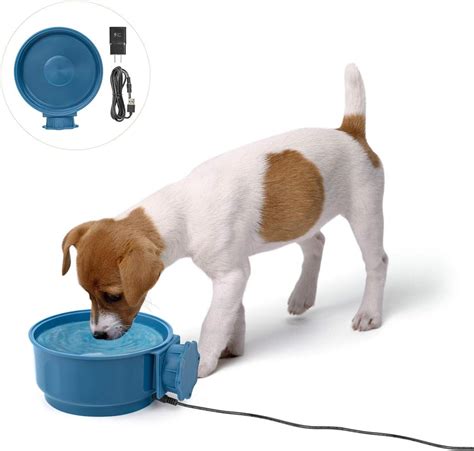Warm Water for Your Pets, No Matter the Weather
Keeping your beloved pets happy and healthy involves more than just food and cuddles. Access to fresh, clean water is crucial, and the temperature of that water can significantly impact their well-being, especially during extreme weather conditions. This article explores the importance of providing warm water for your pets year-round, dispelling common myths, and offering practical tips to ensure your furry friends stay hydrated and comfortable.
Why is Warm Water Important for Pets?
Many pet owners assume that as long as water is available, their pet is adequately hydrated. While access to water is paramount, the temperature plays a surprisingly significant role. Cold water, particularly in winter, can be unappealing to pets, leading to decreased water intake and potential dehydration. Dehydration can have serious consequences, ranging from lethargy and constipation to more severe health problems. Conversely, even in summer, extremely cold water can shock a pet's system. Offering lukewarm water is a gentle approach that encourages consistent hydration.
What Temperature is Ideal?
The ideal water temperature for pets isn't a precise number; it's more about avoiding extremes. Think of it as comfortably warm to the touch, similar to the temperature of a baby's bottle. Avoid water that's scalding hot, which can burn your pet's mouth and discourage them from drinking. A good rule of thumb is to use your own wrist as a guide – if the water feels pleasantly warm on your wrist, it's likely suitable for your pet.
How can I easily warm my pet's water?
There are several simple ways to ensure your pet always has access to comfortably warm water. In colder months, you can use a heated pet water bowl, available from most pet stores. Alternatively, you can warm water in a kettle or microwave (always checking the temperature carefully before offering it to your pet) and place it in a non-spill bowl. In summer, providing fresh, cool water is key, but you can still monitor it and add warm water to it if necessary.
Does it Matter if my Pet is a Dog or a Cat?
While the importance of hydration applies to all pets, the methods of providing warm water can differ slightly depending on the animal. Dogs, being larger and often more active, tend to consume more water. Ensure they have a readily accessible, large water bowl. Cats, on the other hand, may prefer smaller, shallower bowls. Consider offering a variety of water sources, like a pet fountain, to encourage greater water intake.
My pet doesn't seem interested in drinking warm water. What should I do?
Some pets might be initially hesitant about warm water, particularly if they've only ever had cold water. Introduce the warm water gradually, mixing it with their usual cold water until they become accustomed to the slightly higher temperature. You could also try adding a small amount of low-sodium broth or flavored water enhancer (specifically designed for pets) to make the water more enticing. Always consult with your veterinarian before making significant dietary changes.
What about outdoor pets?
Outdoor pets, such as livestock guarding dogs, require extra consideration regarding water temperature, particularly during freezing conditions. Ensure their water source is protected from freezing, perhaps with a heated water bowl or a regularly replenished supply of warm water. Regularly checking the water supply is crucial. Frozen water can lead to rapid dehydration and severe health problems.
Are there any health conditions where warm water is particularly beneficial?
While warm water is generally beneficial for all pets, it's particularly important for pets with certain health conditions, such as those recovering from illness or surgery. Warm water can be easier to digest and help them stay hydrated during recovery. Always consult your vet about the best hydration strategy for your pet's specific needs.
Conclusion: Hydration is Key
Providing warm water for your pets, particularly during colder months, is a simple yet impactful way to ensure their well-being. By understanding the benefits and implementing the tips provided, you can make a significant contribution to your pet's health and happiness. Remember, consistent hydration is key to a healthy and thriving pet companion.

